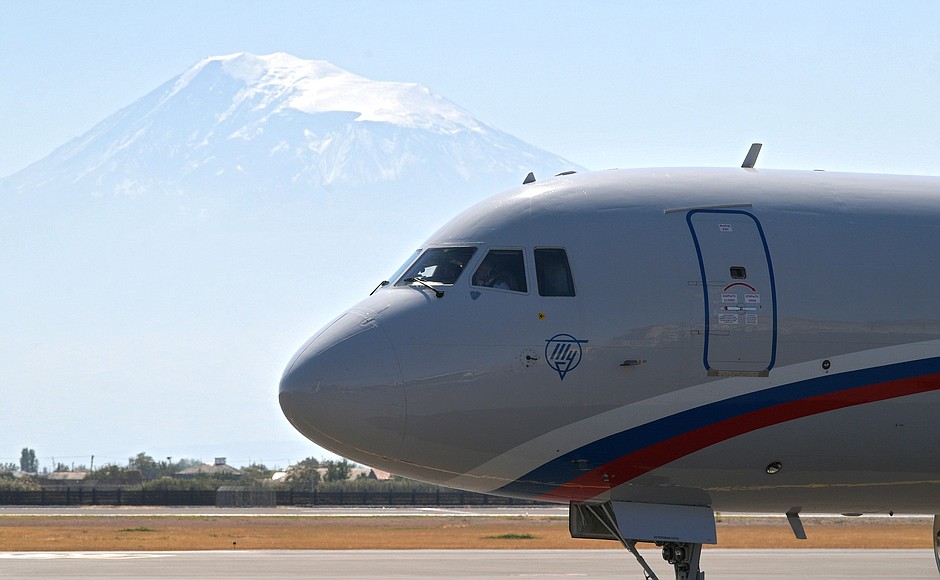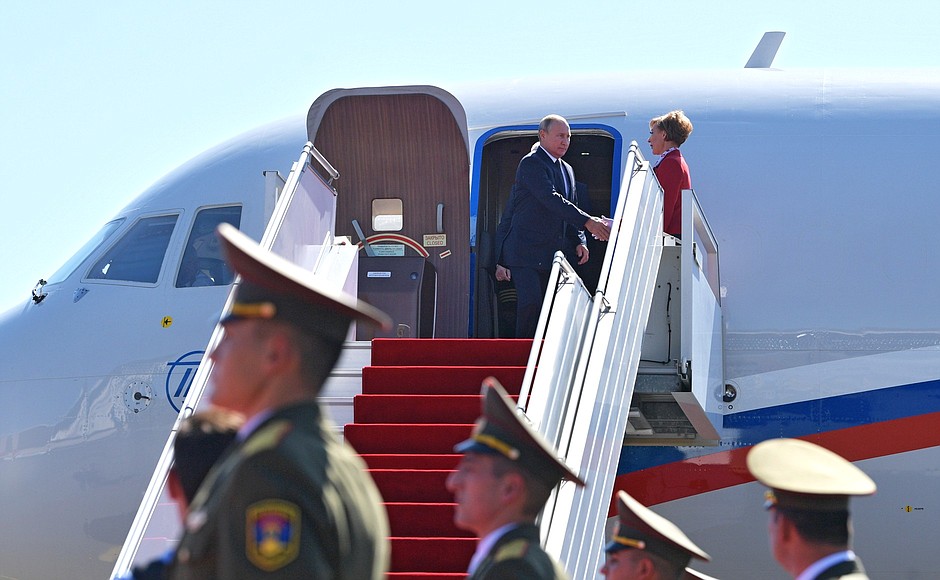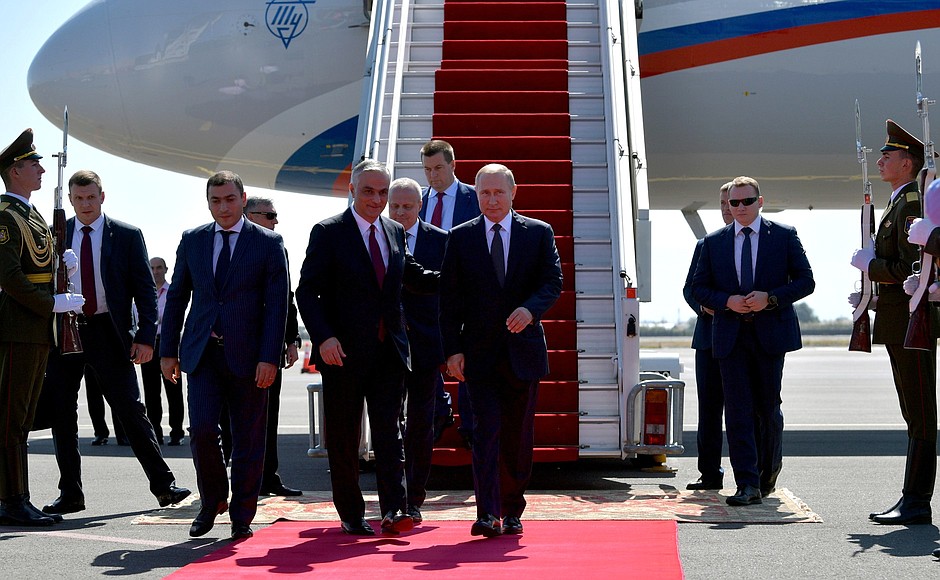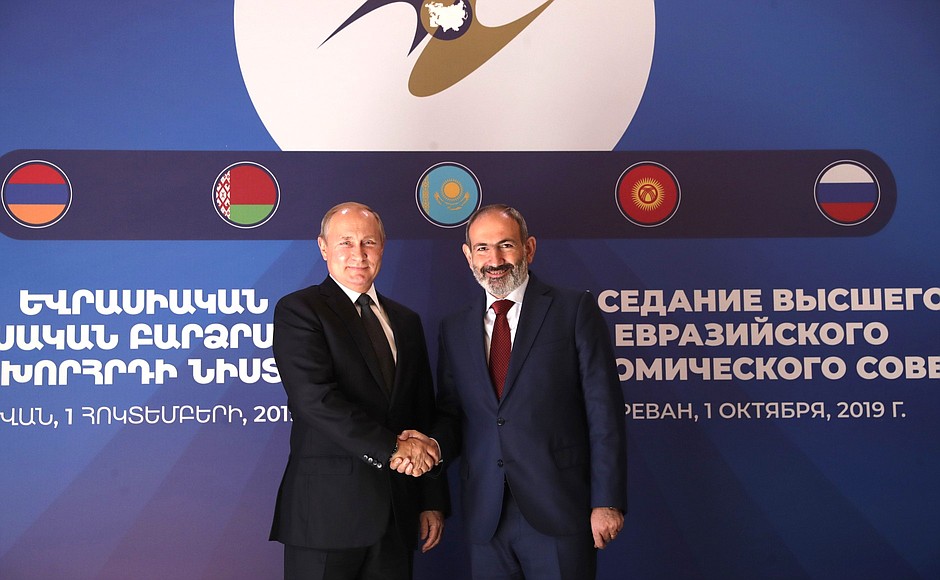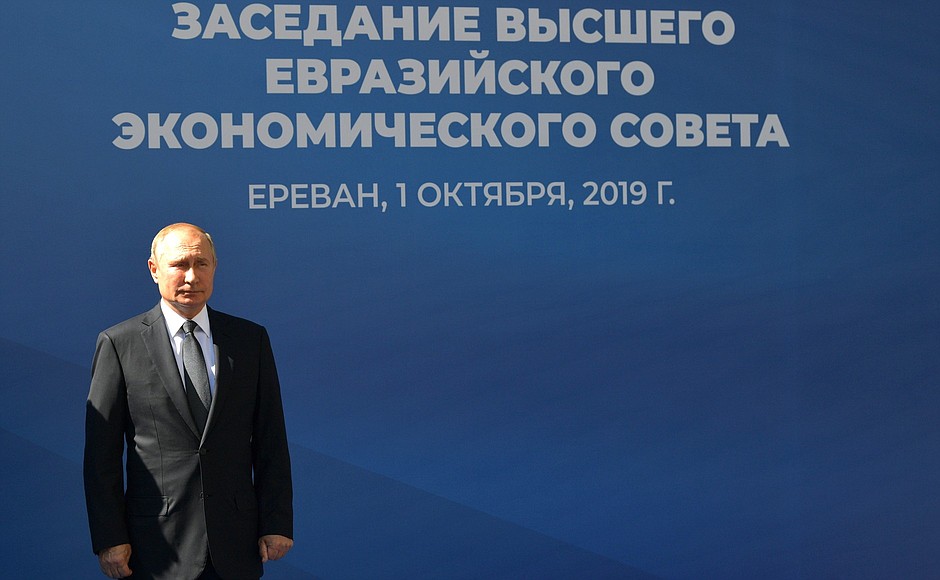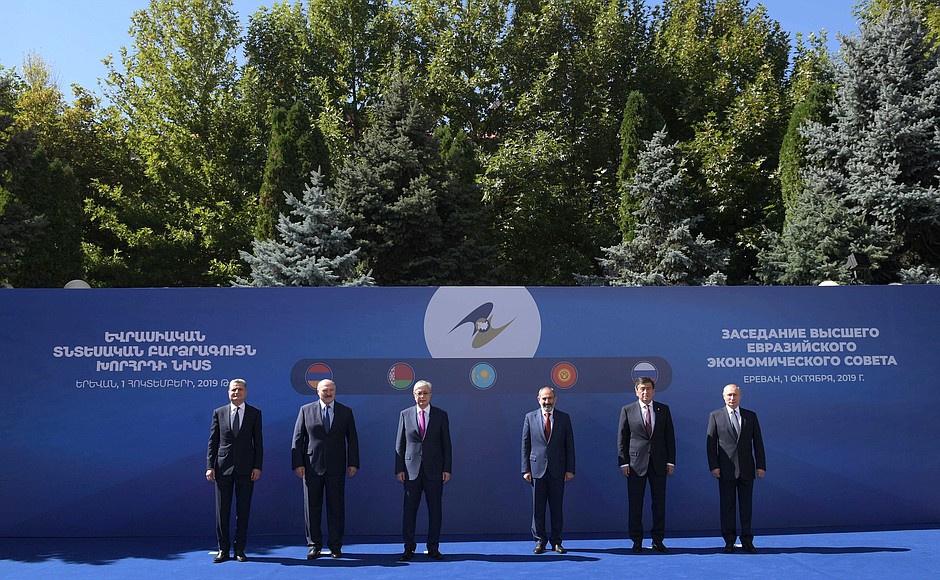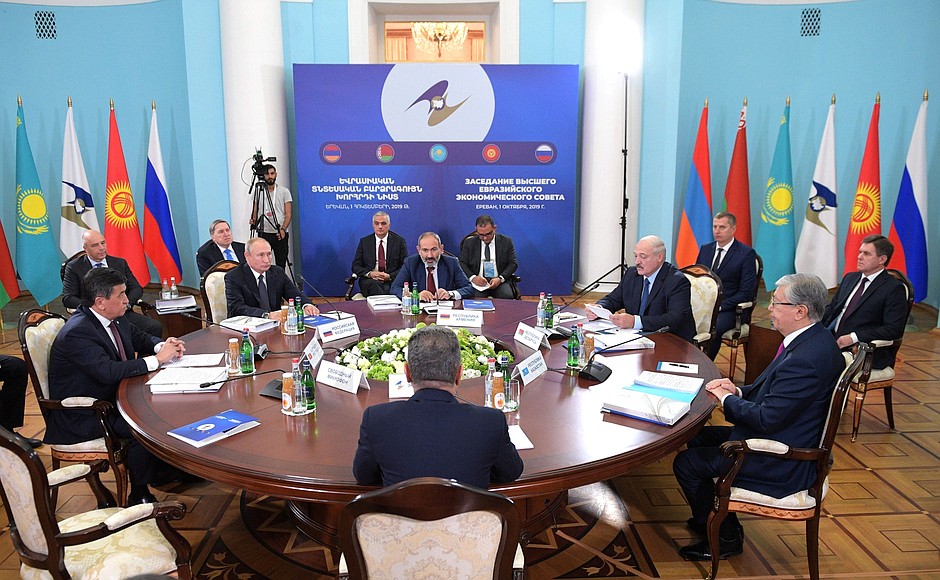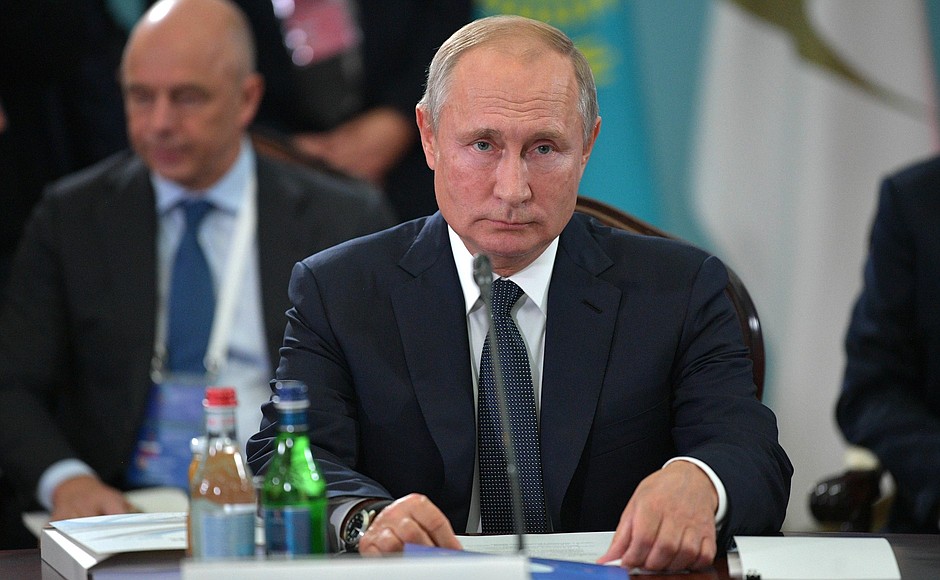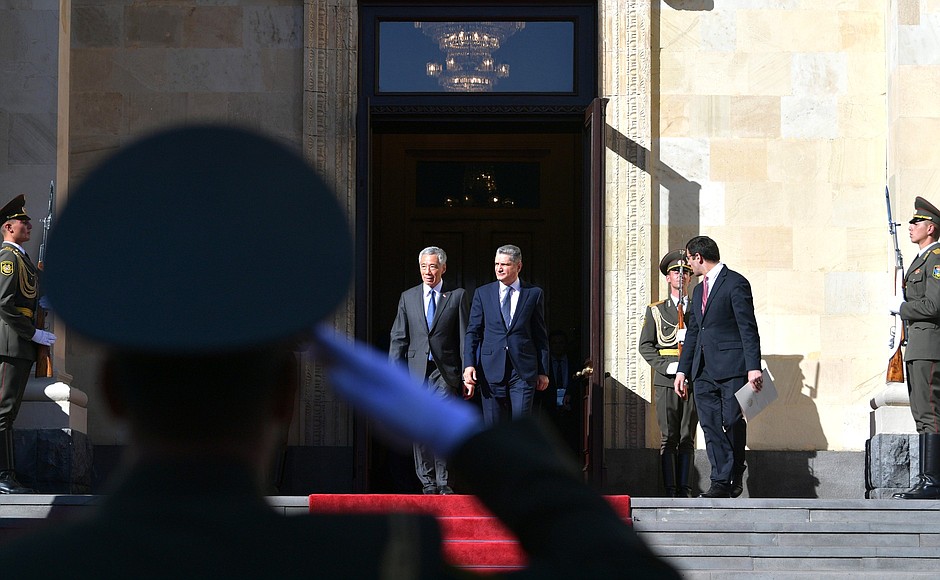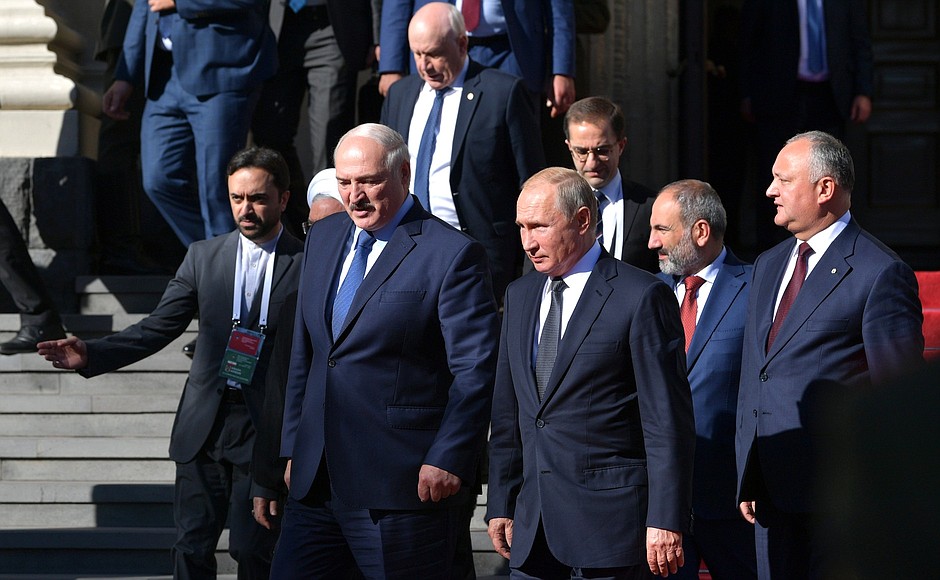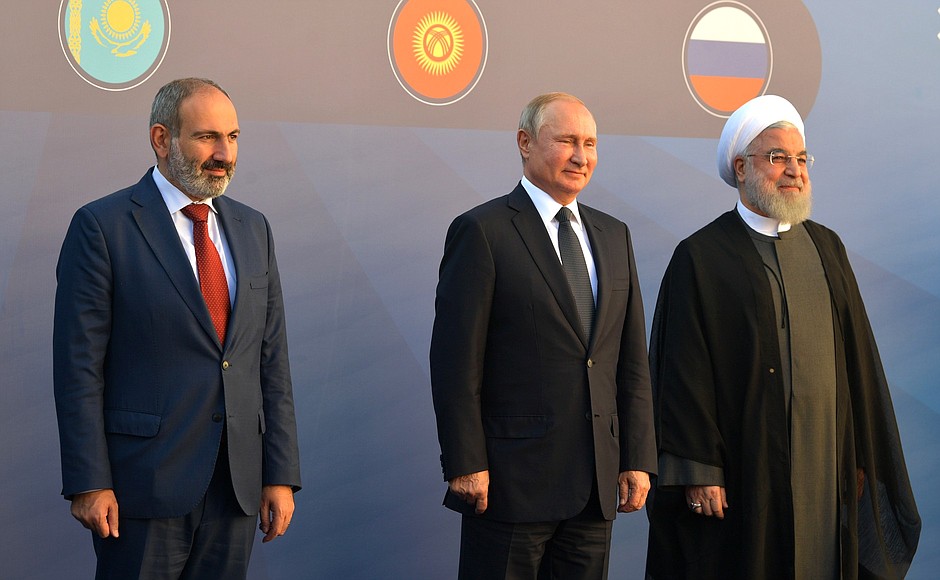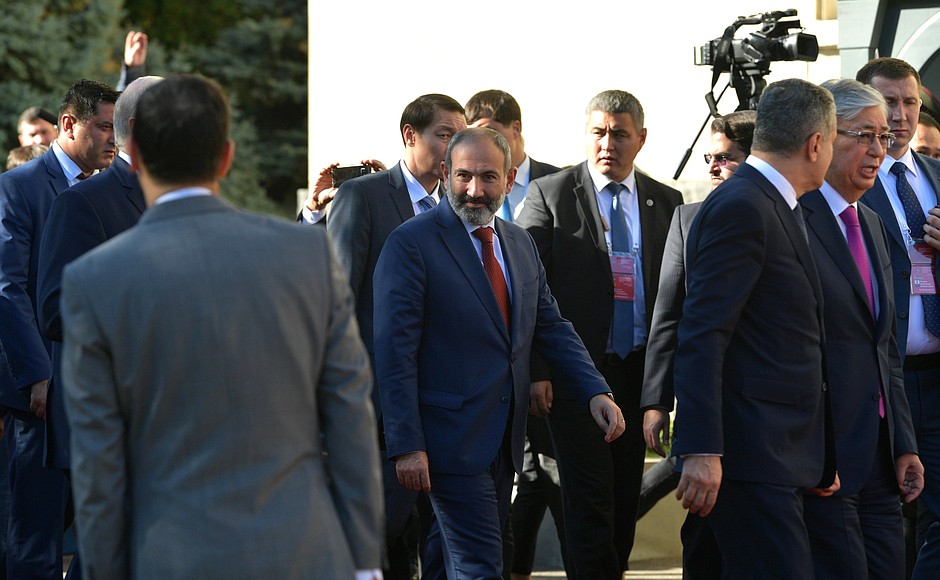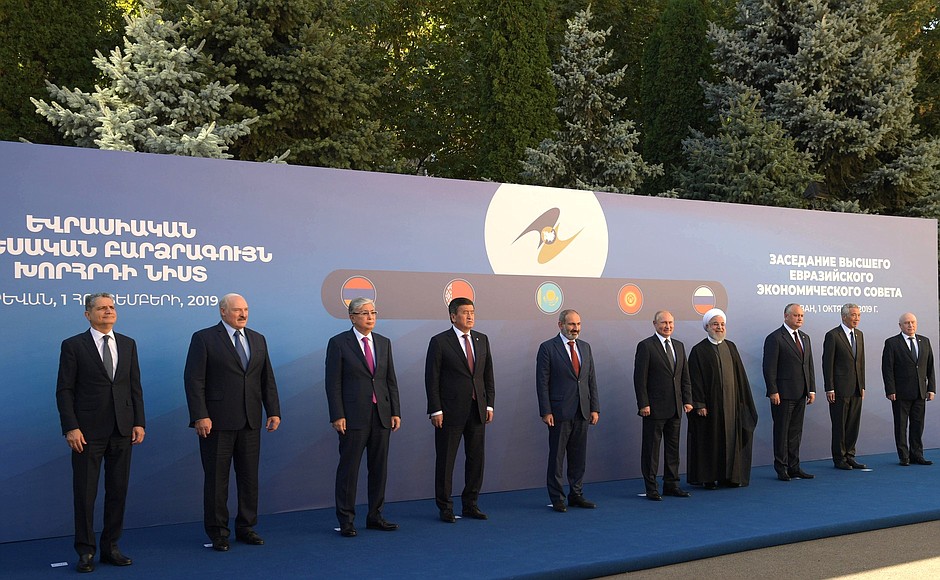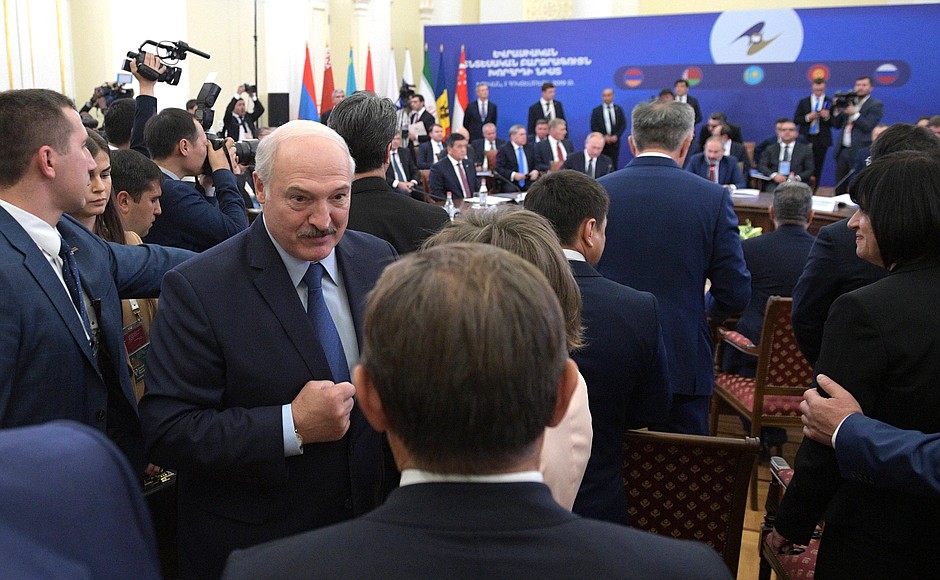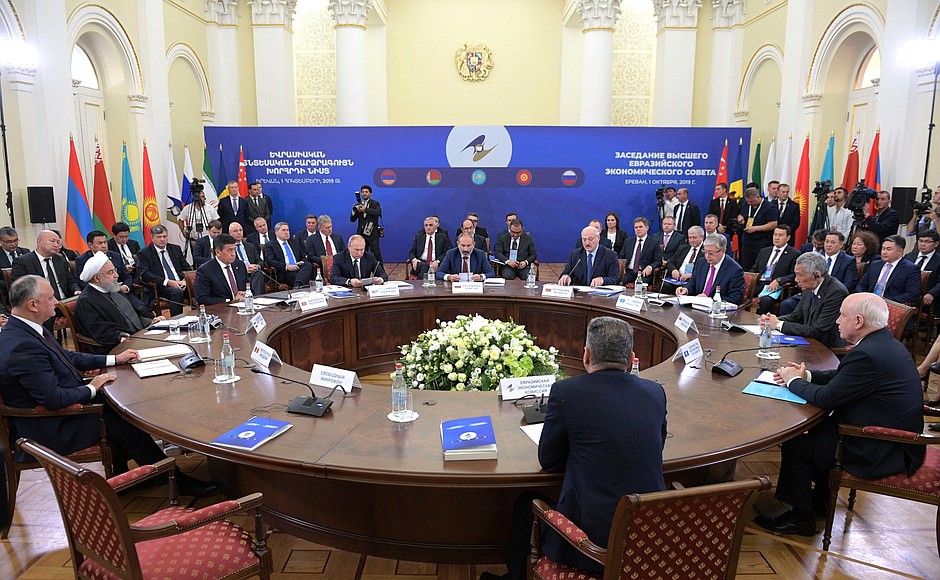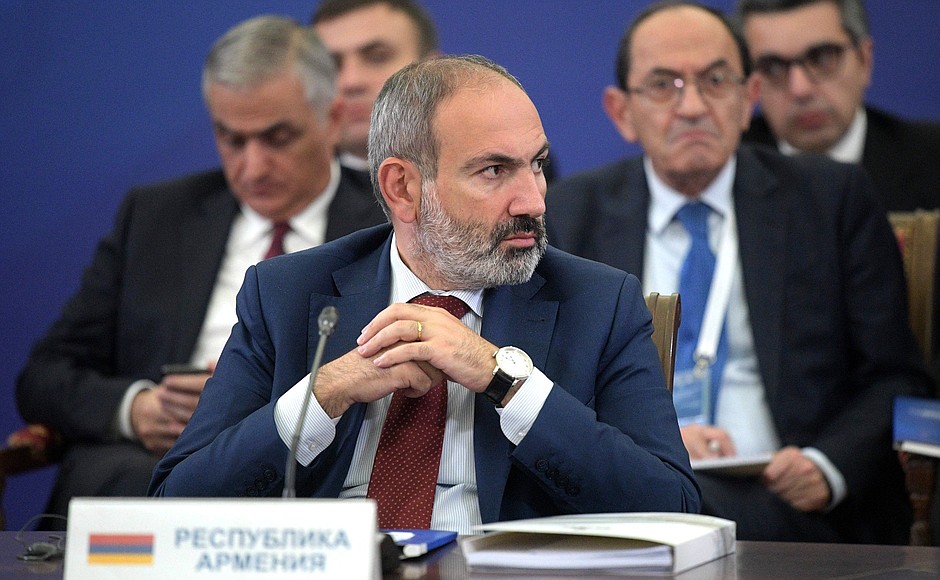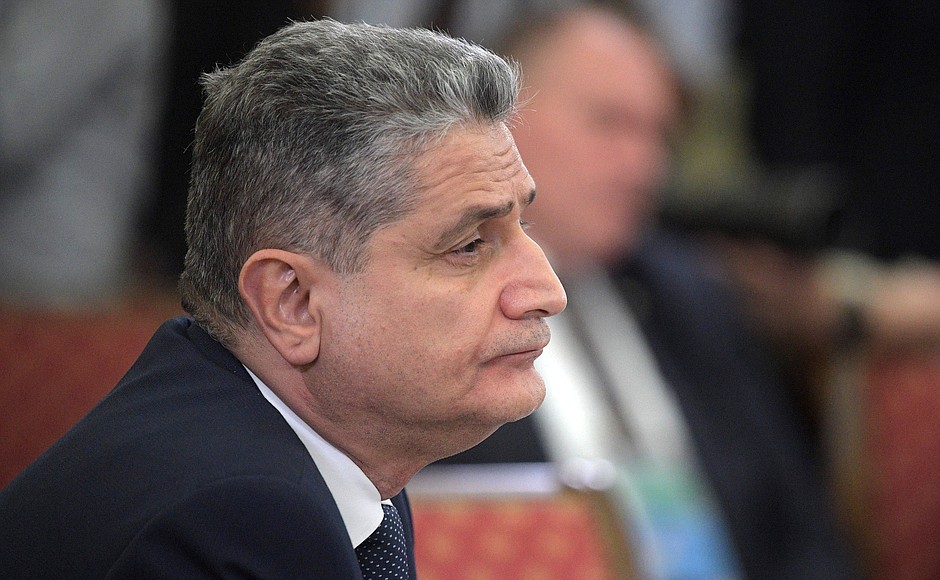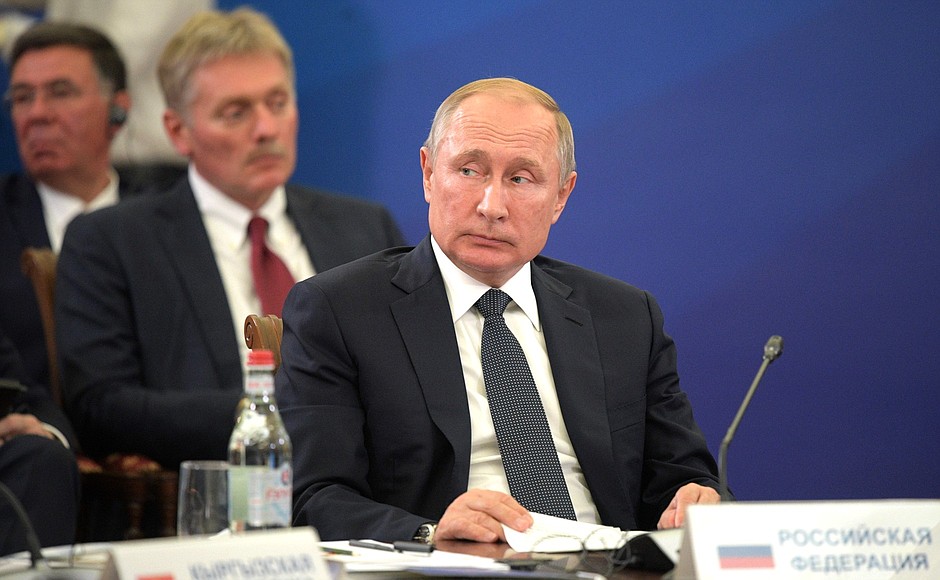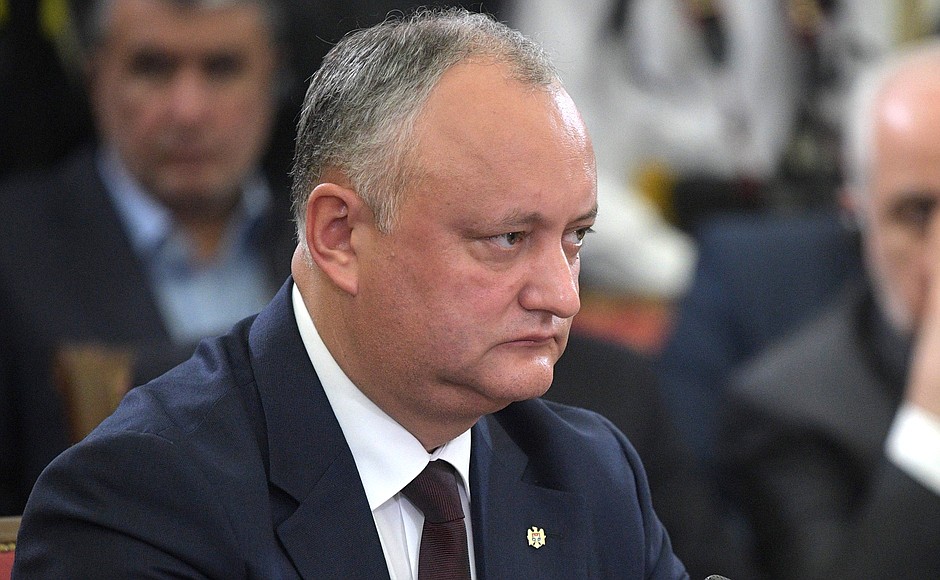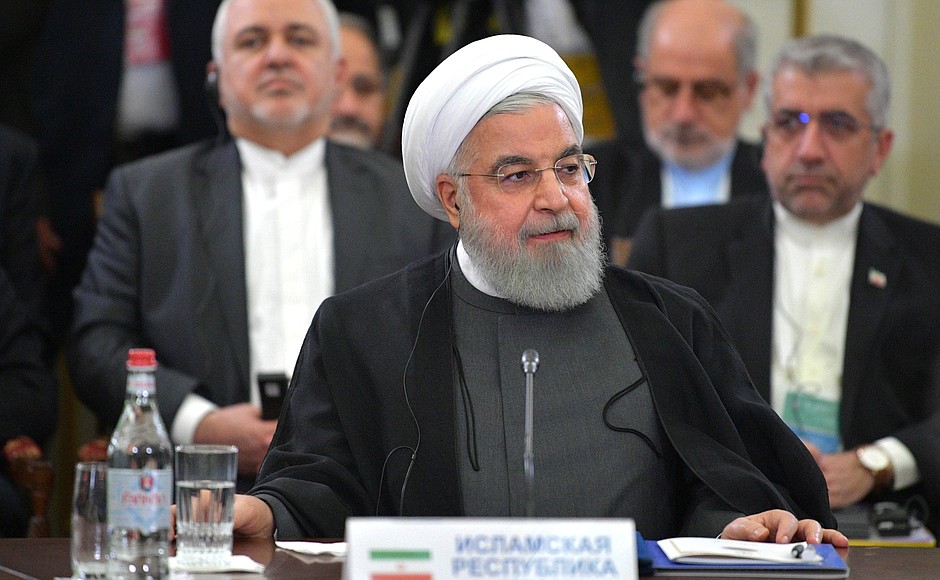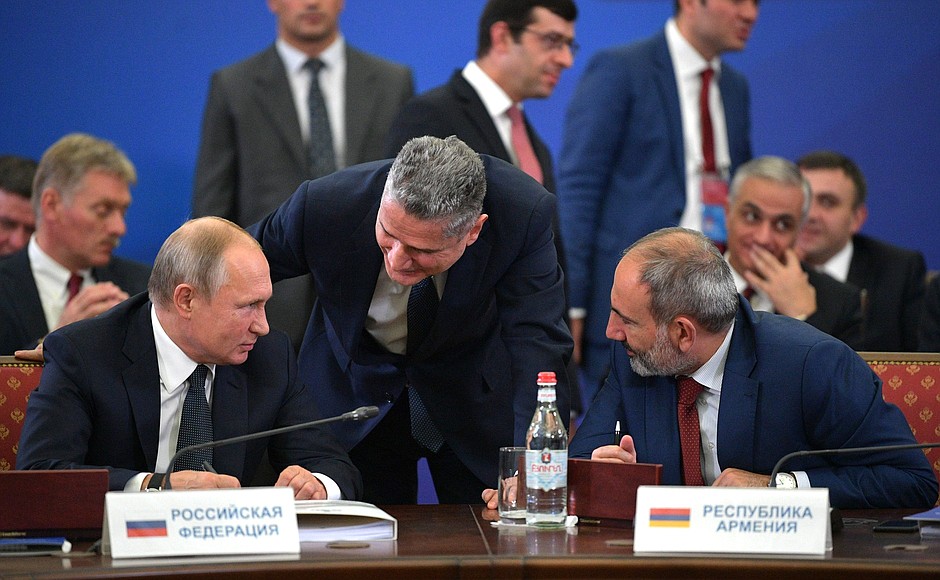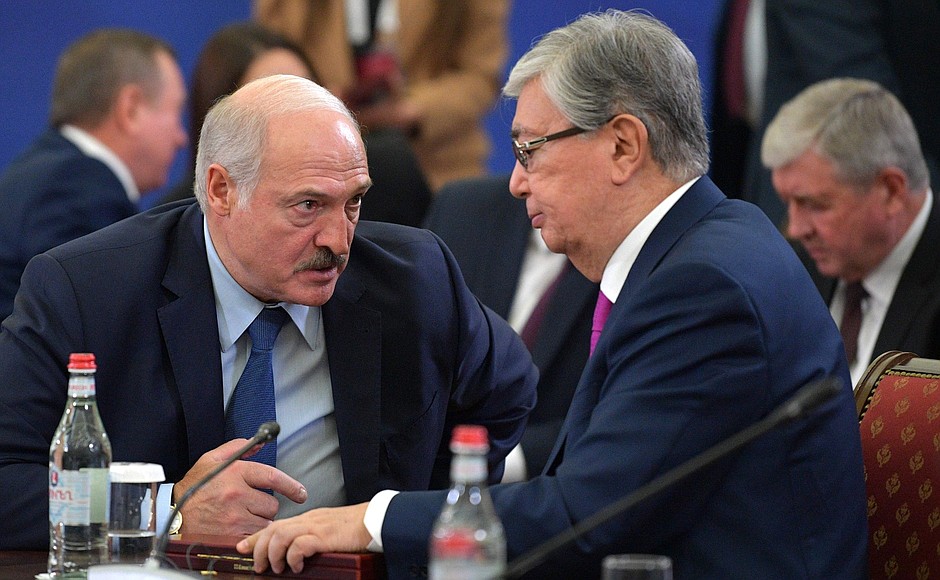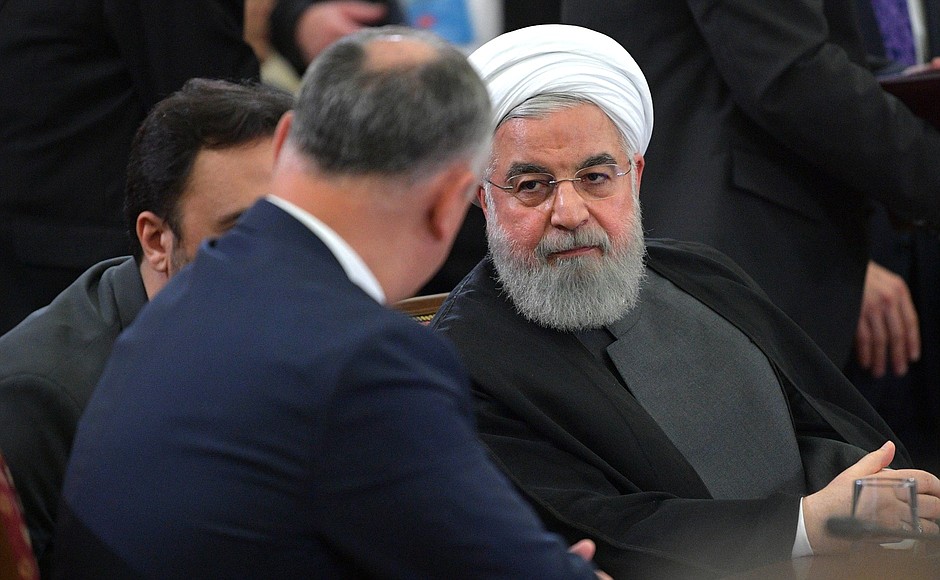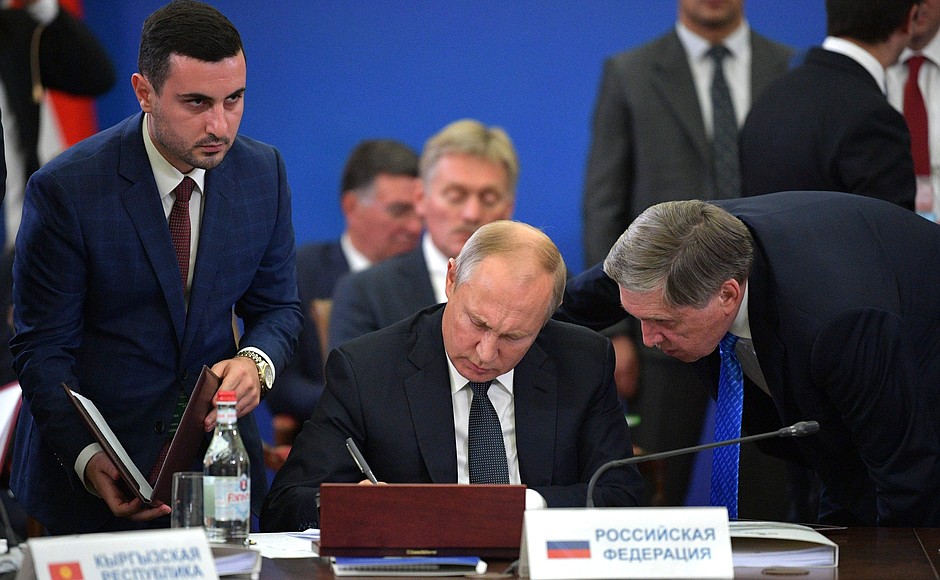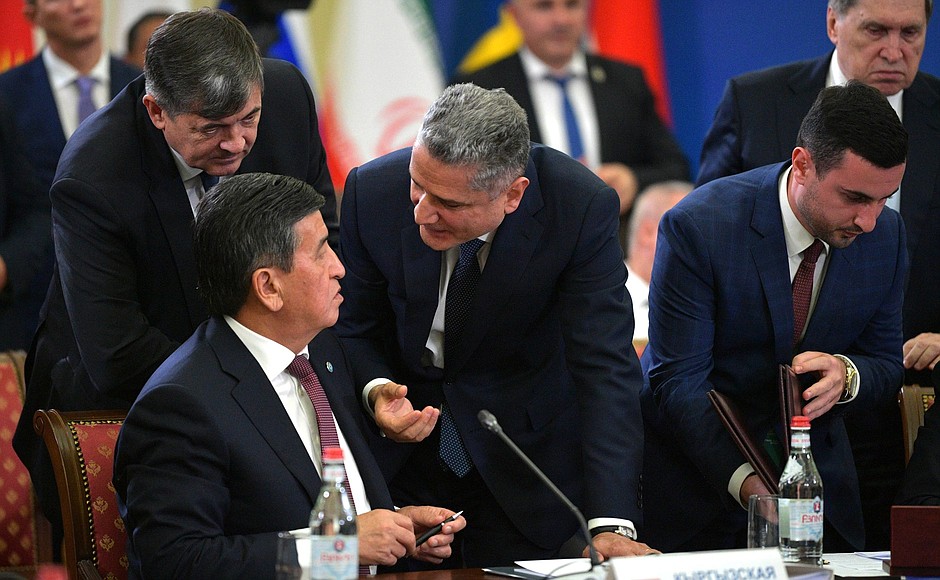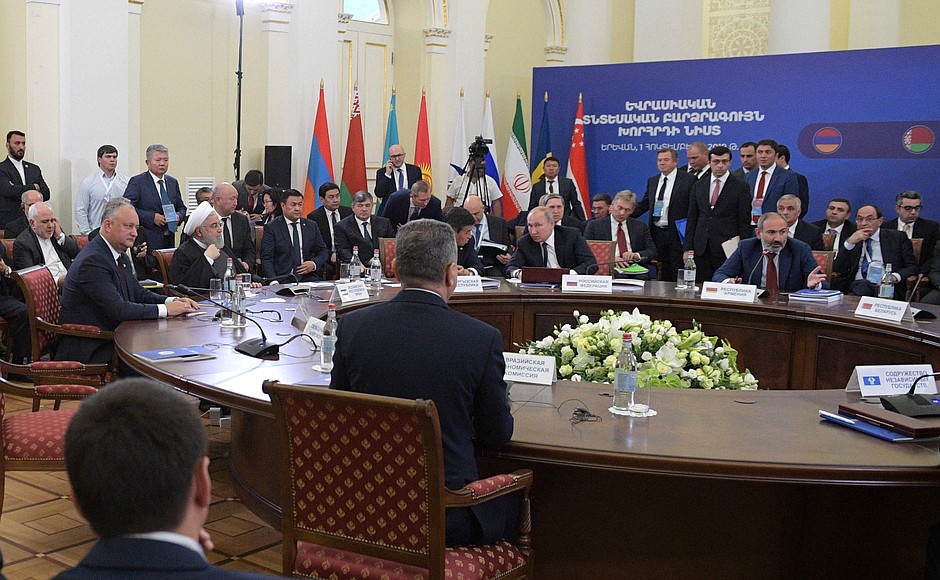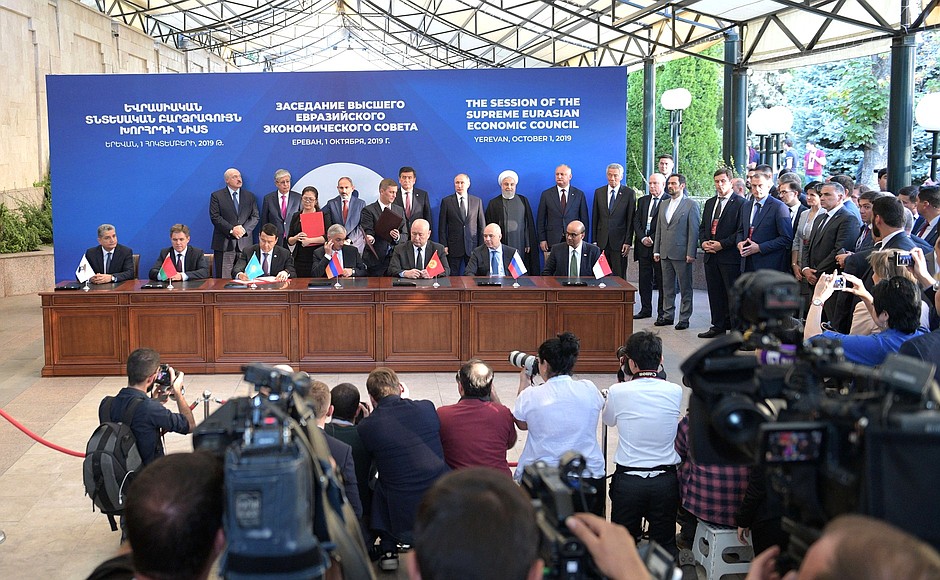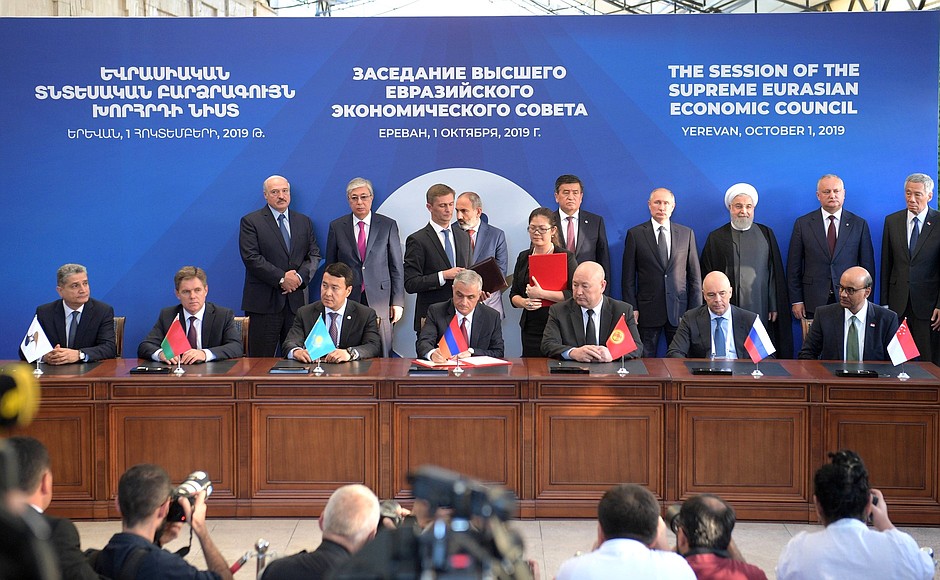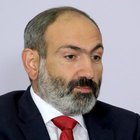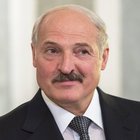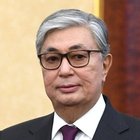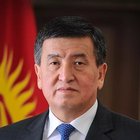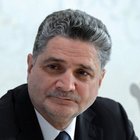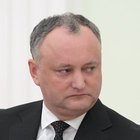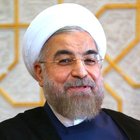The meeting in a restricted format was attended by President of Russia Vladimir Putin, Prime Minister of Armenia Nikol Pashinyan, President of Belarus Alexander Lukashenko, President of Kazakhstan Kassym-Jomart Tokayev, President of Kyrgyzstan Sooronbay Jeenbekov and Chairman of the Eurasian Economic Commission Board Tigran Sargsyan.
Later, the meeting continued in expanded format with the participation of President of Moldova Igor Dodon as the head of an observer state, and guests of honour President of Iran Hassan Rouhani and Prime Minister of Singapore Lee Hsien Loong.
Following the summit, a package of documents was signed, including decisions On the Eurasian Economic Forum, On the Main Areas of International Activities of the Eurasian Economic Union for 2020, On the Concept of Establishing the Common Financial Market of the Eurasian Economic Union, as well as Instructions On Harmonisation of Legislation of the Eurasian Economic Union Member States Concerning Gas Transportation and Supply between the Member States, and On the Time and Place of the Next Supreme Eurasian Economic Council Meeting.
Following the meeting, a ceremony for signing the Free Trade Agreement between the Eurasian Economic Union (EAEU) and its Member States, on the one hand, and the Republic of Singapore, on the other, as well as the Framework Agreement on Comprehensive Economic Cooperation between the Eurasian Economic Union and its Member States and the Republic of Singapore took place in the presence of the heads of the EAEU member states.
* * *
Speech at the Supreme Eurasian Economic Council meeting in expanded format
President of Russia Vladimir Putin: Friends,
I agree with the positive assessments of the Eurasian Economic Council’s work. The EAEU is developing steadily. It has created a vast market that is functioning well. Integration processes in the EAEU exert a favourable influence on the participants’ economies and facilitate the rise in the living standards.
I would like to note that the aggregate GDP of the EAEU countries also continues to grow, as well as industrial and agricultural production. At the same time, our association is facing new ambitious tasks. We believe special attention should be paid to systematic efforts to remove barriers in trade in commodities and services in different sectors of the market.
The introduction of all-union regulation in finances is also a priority. Following the current meeting we are expecting to approve the concept for the formation of the EAEU’s common financial market. This document will become a roadmap for drafting and approving universal rules for banking and insurance services and transactions with securities. The implementation of measures envisaged by the roadmap will make it easier for people to use financial instruments and will make this segment of the market uniform and transparent.
The improvement of union legislation in energy is proceeding at a good pace. We hope the agreements on forming a common EAEU electricity market will come into force in the near future. The common electricity space should be established simultaneously with the formation of the union markets of gas, oil and oil products in 2025. First and foremost, it is necessary to complete the alignment of the member countries’ legislation on the supply and transportation of gas.
EAEU cooperation in the digital economy should be further enhanced of course. In particular, it is our common interest to launch the standardised job search system “Work without Borders” as soon as possible. This project will help EAEU citizens find job openings in any of the EAEU countries online.
We are also committed to quickly implementing the agreement on the traceability of goods imported into the EAEU customs territory. According to today’s decision, the Eurasian Economic Commission will be granted additional authority for that.
It is important to ensure transparency in the distribution of goods in the EAEU market; this requires a completely digital exchange of legally valid shipping documents, and the electronic labelling of goods needs to be introduced more comprehensively. By the way, the pilot project on labelling a number of goods has proved effective in fighting counterfeit products, and has increased tax revenues.
Colleagues, we consider it important to continue to work on strengthening mutually beneficial economic cooperation between the EAEU and interested foreign partners.
And of course, like our other colleagues, I welcome here today President of Moldova Igor Dodon, President of Iran Hassan Rouhani, and Prime Minister of Singapore Lee Hsien Loong.
Allow me to emphasize that the agreement on a free trade zone with Singapore, signed today in the presence of Mr Lee Hsien Loong, is expected to create favourable conditions for building up mutual export-import operations and deepening cooperation in various fields.
I recently had the pleasure of visiting Singapore at the government’s invitation. I must say and confirm that Singapore is definitely a reliable and stable partner with a fast-growing economy and good administrative regulation.
We also expect that a temporary agreement on a free trade zone between the EAEU and Iran will become effective in late October. Its implementation will bring down import tariffs and lift other restrictions that are hindering the flow of commodities. Taken together, this will certainly stimulate mutual trade and investment.
Overall, the range of the EAEU’s contacts continues to expand. The Union is conducting concrete talks on cooperation with 13 countries, including Serbia, Israel and Egypt, and with over 20 international structures and organisations. We plan to launch talks soon on a free trade zone with India, which has a huge, colossal market. It also has a rapidly developing economy, which is growing faster than in any other country.
In light of the upcoming Russia-Africa Summit – colleagues, I would like to tell you that the first Russia-Africa Summit will be held in Sochi on October 23–24 – the Eurasian Economic Commission plans to sign a memorandum of understanding with the African Union Commission to develop multilateral cooperation between the five member states and African countries.
The EAEU has been working long and successfully to expand cooperation with the dynamically growing economies of the Asia-Pacific region. We should continue to strengthen the Union’s ties with the Shanghai Cooperation Organisation and ASEAN and also promote the idea of greater Eurasian partnership.
Of special importance in this context are the Union’s trade and economic relations with China, which, by the way, is celebrating the 70th anniversary of the People’s Republic of China today. I would like to convey the best regards of the Russian people to our Chinese friends on this occasion. We are convinced that the agreement on cooperation with China, which comes into force soon, will mark yet another step towards the alignment of integration within the EAEU with China’s Belt and Road Initiative.
Colleagues, in conclusion I would like to express gratitude to our Armenian colleagues for organising our collaboration today.
Thank you.
